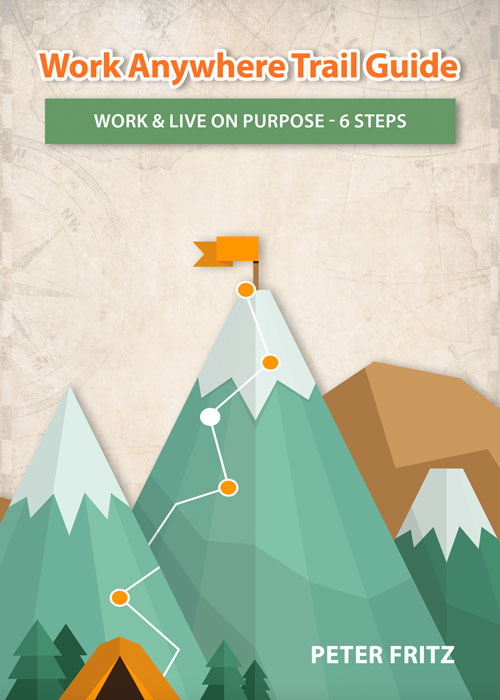[fusebox_track_player url=”https://www.buzzsprout.com/1079927/5461972-what-are-the-first-steps-to-starting-a-side-business-ep-115.mp3?blob_id=22247092&download=true” title=”What are the first steps to starting a side-business? – EP 115″ social_linkedin=”true” social_email=”true” ]
Creating a side business is an ideal path towards the autonomy, freedom and peace of mind we seek. But knowing where to start can be tricky – there’s a lot of advice out there, and some of it from people with very little or only one-dimensional experience.
Well, I’m about to give you more of it. The difference is, I do have the experience, and it’s across multiple industries, channels and disciplines.
To some of you, the concepts of ‘freedom’ and ‘autonomy’ have been over-hyped to a point where they’ve become bywords for bullsh*it. You doubt they’re really attainable and so their desirability has dimmed for you over the years. But like anyone who doesn’t think bungee jumping is life-changing (it really is!), you believe it when it happens.
My Beginning
That’s how it was for me back in 1976 when my neighbour opened her front door to witness a much younger Peter Fritz with his knees shaking, hands sweaty and voice quivering.
I was eight years old, and thanks to Black Sabbath’s “We Sold Our Soul for Rock ‘n’ Roll” album (which took me weeks to save for), I’d decided I needed a drum kit, and that to get one I’d have to make at least $100.
At that time, my sister and I earned our weekly allowance by vacuuming the house, washing dishes and ironing clothes (I still do a mean job on a cotton shirt). But I knew those meagre earnings wouldn’t be enough to scratch my itch. So in my first entrepreneurial seizure, I decided to make something everyone would surely want – a collection of letter openers carved from 6-inch nails. My dad was a builder so I had unfettered access to the back shed and all the tools I required, plus a steady supply of raw materials.
For weeks, I laboured over my designs well into the evenings and was rewarded with a selection of pieces that seemed good enough to sell.
So standing at Coralee Burke’s front door and delivering my well-rehearsed pitch, I sold my first product, plucked from the pewter display cup my mum had lent me, and in an instant, my quest for freedom and autonomy begun.
I hadn’t stopped wetting the bed yet, but I believed I was destined to become a drum-playing businessman of considerable means.
Other ventures followed, and despite the slow take-up for my handicrafts, I remained undeterred and optimistic about my future. Over the ensuing years, I tried a lot of things and through lots of practice and dogged persistence, I became a writer, a Web designer, motoring journalist and photographer. I renovated properties, sold Asian groceries and rented out movies. I became a life-long side-hustler.
Some of my ideas fizzled or never got off the ground, but just as my first foray into business showed me I could make the sale, it also taught me not to give up completely when things didn’t work out as hoped.
Today, it’s no different. In fact, the key principles are truer than ever – only the mechanics have changed and the potential outcomes amplified. Before, it was door-to-door, local newspaper ads and letterbox drops. Today, it’s the Internet, it’s podcasts, eBay and YouTube. But the core tenets remain.
The Four Steps
- Create something people want (a product or service)
- Attract their attention
- Gain their trust
- Help them decide if what you offer is right for them
Success principles are universal, and these four steps have proven true in my own ventures time and again. They’ve also been reinforced in me by mentors and teachers – the most recent confirmation coming from Dov Gordon – one of the smartest business strategists I’ve ever known.
Pandemics notwithstanding, poor results often stem from a failure in one or more of these steps.
Where to Begin
So what does it take to actually start a business? Is it a great product? Financial resources? Notoriety? A fancy logo or a cool website? Maybe… but usually not.
I’ve seen people become hugely successful on a shoestring budget, a widely available product, no audience, and a terrible website. Instead, they’ve focused on the four steps. They’ve offered something people actually want (and will pay for), they’ve gained enough attention, they’ve built trust (which requires patience), and instead of trying to ‘close’ people, they’ve served people.
Thanks to the Internet, we’re blessed with the means to reach people on a global scale. This creates something of a paradox, though, because the moment we hang out our shingle, we immediately become the smallest needle in the largest haystack. The flipside: it also allows us to be exactly who we are and still find willing buyers. We can pick and choose from the myriad sales channels and deliver value that’s unique to us and perfect for our customers.
Those channels might include one or more of the following:
- A website
- Course platform (Udemy, Teachable, Kajabi, etc.)
- Webinars (Demio, WebinarJam, EverWebinar, etc.)
- YouTube, Vimeo, etc.
- A podcast
- Social media
- eBay, Amazon or Etsy
- Upwork, Fivver, etc.
- A Facebook or other community
- Clubs, associations, industry groups, etc.
But where do you begin? Where’s the low-hanging fruit? Well, that depends.
My wife sells a highly commoditised product range sourced through multiple vendors, so she moves them via eBay and Amazon. My youngest daughter likes makeup and being in front of a camera, so she first built a following on YouTube, and now sells live webinar training sessions on make-up application. My eldest daughter loves fashion, so she offers designer dresses for hire and promotes them via Instagram.
I teach people about living on purpose, so I share my ideas with a blog and a podcast. I also design marketing programs and websites for other businesses, so my work comes through my own website and referrals. I don’t particularly enjoy social media, so I pay someone to help me a bit. I also want to do more video but don’t have time to edit everything myself, so I’ve hired someone to help with that, too.
What these examples illustrate is a key question you must ask yourself. That question is, “What am I interested in and/or what skills or unique insights do I have?” This question is critical to everything that follows. Here’s why.
- You know more than you think you do about something.
- There are almost certainly other people who can benefit from it.
- When you try to do or sell something about which you know or care very little, you’ll probably fail – either by quitting early because you’re bored, or because you’re no damn good at it.
This, more than any other question, is where so many of you will fail on your first attempts. That’s because you’ll choose something that’s either:
- A passion, but not your unique and marketable skill
- A hot ticket to easy money (you’ll know it feels wrong, but…)
- Way too broad to appeal to anyone
Mastery comes before money.
I’ve been guilty of all three. Unsurprisingly, the things that have made me the most money are the things where I’ve developed mastery – Web design, marketing, writing, photography and property investment.
Getting there reminds me of something Charlie ‘Tremendous’ Jones said. When someone asked him how he became so successful, he replied:
“Good judgement.” The person then asked, “Well, how did you get that?”
“Experience.”
“How did you get that?”
“Poor judgement!”
Over the last four years, I’ve sought to build mastery in a new skill – helping people live better. Nothing grand, but worthy all the same. And during that time, I’ve rarely sought to make a buck from it because I’ve learned that mastery precedes money. And unlike a technical skill, selling advice that might change someone’s life requires a bigger investment in mastery (in my opinion). And like all things I’ve mastered, it’s required that I gain experience through poor judgement.
You’ll have to go through the same process. Granted, the timeline might be much shorter – I started selling my Web design skills from the first year I got on the Internet – but the process will still be there.
The Long Game is the Shortcut
So where does this leave you? I believe it goes like this.
- Make an inventory of the skills you already have and try to combine your stand-out skill with one or two others so they act as a multiplier of the first. And try to include at least one soft skill; it can make all the difference with how you position yourself. For example, I combine my design skills with my (limited but serviceable) ability to write and speak, and my empathy as a middle-aged divorcee who lost everything then made it back again.
- Decide how you want to share what you know. Do you like to write, speak, or get on camera? Are you a visual person? Do you prefer long-form or short-form communication? Whatever you decide, what platforms best suit your preferences? Decide on one and begin with that.
- Find out what you need to learn to sell your skills on the platform you’ve chosen. Don’t wing it if you don’t have to. Find someone who’s done what you seek to do and who teaches those skills, then learn from them. You might have to pay for it, but that’s a good thing. We pay more attention when we pay.
- Start creating and iterate as you go. Follow those you respect but don’t become their mirror image. Be yourself, because no one else can be you. That’s your USP.
- Play the long game and learn what your potential customers want. Talk to them, listen to them, and speak to them in a way they understand and appreciate. And remember, you’re only trying to please the smallest viable audience. You can’t, and should never try to please the majority.
- Be honest and authentic in all your work. Recognise that your job is not to ‘sell’ or ‘close’ anyone, but to get their attention, earn their trust, and then help them decide if you’re right for them or not.
Remember, tactics have their place, but nothing takes the place of principles.
Always look at your motives and be honest about them. If you want to be famous, that’s fine, but be honest about it. If you want to help someone solve a problem, overcome a challenge or improve their life in a particular way, then constantly check if your decisions match that desire.
What’s Really Stopping You
It’s unlikely your ability to start something is hamstrung by any of the reasons you’ve told yourself. It isn’t money or time or expertise. It’s mostly fear. Fear that you’ll be flushed out as a fraud, as awkward, inadequate and unwanted. You worry that no one will pay attention.
All of these fears are as real as they are unwarranted. Yes, you probably will be awkward and unpolished, but most of us view this as authentic, so don’t sweat it. So long as you’re not trying to be someone else, it’s fine.
And yes, for a while at least, no one will pay attention, and you’ll probably suffer imposter syndrome quite often (ditto every single person – even the famous ones). Don’t worry about those things. Here’s all you need to worry about:
- Start.
- Try to be useful.
- Be yourself.
- Keep learning.
- Iterate as you go.
If you want freedom and autonomy, you’ll have to earn them. It won’t be easy, but thankfully, it’s never been easier.
Now go for it.
![]()
Recent Posts
The Top 5 Challenges of Working from Home
Standing at an open fridge and trying not to eat is like having Gal Gadot and Tom Hardy walking around your house in their underwear and trying not to look.Working from home is the same. It's brilliant, but not without challenges.Strangely, I only seem to have one,...
If you’re unhappy, don’t quit your job. Change location.
[smart_track_player url="http://traffic.libsyn.com/midlifetribe/If_youre_unhappy_dont_quit_your_job._Change_location_-_096.mp3" background="#f2f2f2" social_gplus="false" social_linkedin="true" social_email="true" ] A quick Google search reveals most of us are stressed...
Becoming the ultimate parent.
[smart_track_player url="http://traffic.libsyn.com/midlifetribe/Becoming_the_ultimate_parent_-_094.mp3" background="#f2f2f2" social_gplus="false" social_linkedin="true" social_email="true" ] Unless your surname is Hilton, Arnault or Quandt, your kids probably won't...
I’ve decided I need a kick up the ass. So I’m paying a man to do it.
[smart_track_player url="http://traffic.libsyn.com/midlifetribe/I_need_a_kick_up_the_ass_-_092.mp3" background="#f2f2f2" social_gplus="false" social_linkedin="true" social_email="true" ] I once read that smart people experience depression more than dumb people. And...
Remote workers are good for business – statistics prove it.
[smart_track_player url="http://traffic.libsyn.com/midlifetribe/Remote_workers_are_good_for_business_-_090.mp3" background="#f2f2f2" social_gplus="false" social_linkedin="true" social_email="true" ] Since I was a kid, I've been an ambitious little bastard. At eight, I...
Your values – the BS versus the truth.
[smart_track_player url="http://traffic.libsyn.com/midlifetribe/Your_values_-_the_BS_versus_the_truth_-_088.mp3" background="#f2f2f2" social_gplus="false" social_linkedin="true" social_email="true" ] Like a lot of you, some of my big 'life' questions resurface towards...
Step 1: Work from home.
Step 2: Create a life.
Download the Guide








